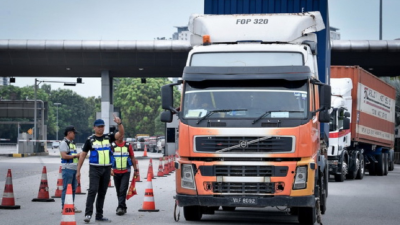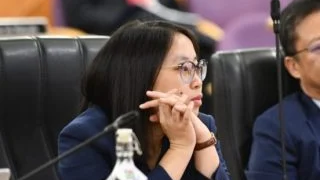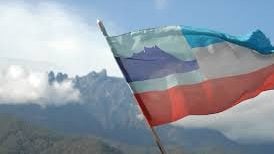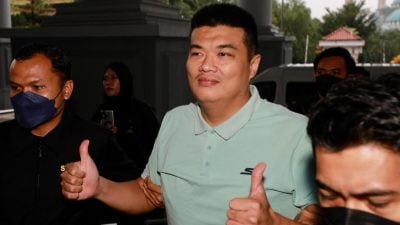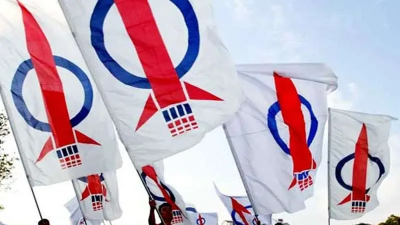TAIPEI: Despite showing concern about the current situation, former president of Taiwan Ma Ying-jeou is optimistic that neither China nor US want a war in the Taiwan Strait.
“It has not yet reached the point to worry about war.
“Of course, we can’t say it will never happen.
“In English, we say ‘not impossible but unlikely,’” he said.
Ma believes that China, which has achieved significant accomplishments at this stage, will cherish what it has developed so far.
“In terms of advancement in economy and technology, China has progressed rapidly. The wisdom of the Chinese people must not be underestimated.
“I think as China continues to develop, it will become more cautious because such achievements are hard-earned and must not be simply erased.
“Furthermore, the relationship between the US and China is improving,” Ma, who is also the chairman of Ma Ying-jeou Foundation, told Media Chinese International Limited and Sin Chew Daily editor-in-chief Kuik Cheng Kang in an exclusive interview.
Also present at the interview were Ma Ying-jeou Foundation chief executive officer Hsiao Hsu-tsen and a director of the foundation Lin You-hsuan.
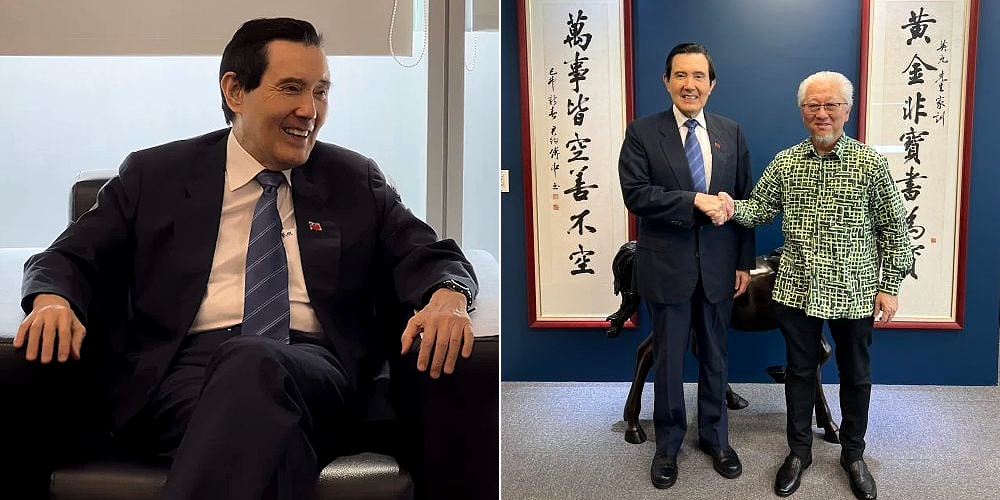
The US is aware that they can’t always be ahead of China in some fields, said Ma, adding that China has its own strengths, so a peaceful competition is a win-win for both side.
“Therefore, I am not so pessimistic about the US-China relations. Both sides understand that if they go to war, it will be a lose-lose situation for both,” he said.
Addressing the concerns among overseas Chinese about the situation in the Taiwan Strait, Ma is relatively optimistic.
The key factor is close communication and exchanges between both sides, he said.
There are a few million Taiwanese businessmen in China and such feat is not easy to achieve, he said, adding that once established, the outcomes are significant.
The Chinese leaders understand this very well, he said.
“I believe they are reluctant to go for war. In fact, once a war breaks out, ordinary people will suffer regardless of the outcome. They understand this very well, too.
“I think everyone has built a friendlier mechanism that allows both sides to work towards peace.
“China certainly wants unification, but if the means are not peaceful and the process is not democratic, the Taiwanese people will not accept,” he said.
Taiwan is a democratic society now, so if China can understand this, it will certainly help in terms of development for both sides, Ma said.
“I think it is important to emphasise that the process must be peaceful, and the methods must be democratic too,” he said.
“As China continues to develop, it will become more cautious because such achievements are hard-earned and must not be simply erased.”
On whether the U.S. presidential election results will impact the stability of the Taiwan Strait, Ma said, “I am a bit worried about this election. You know, Biden is really struggling to regain his momentum. For Trump, as you know, he often acts impulsively and is not very steady. So, I am worried.
“Of course, they definitely would not want to deal with the Communist Party of China in any way other than the peaceful one. The US can’t afford to pay for the price,” he said.
On common perception that the Democratic Progressive Party (DPP), Kuomintang and Taiwan People’s Party (TPP) no longer have significant differences on the issue of unification and independence, Ma disagreed, emphasising that Kuomintang supports peaceful unification but not by force.
“The DPP opposes unification and doesn’t even acknowledge that they are Chinese, which is quite different.
“As for the TPP, they are more moderate and don’t have strong views on unification,” he said.
The Taiwanese people have not reached a consensus on unification with China, he said, adding that they do not achieve consensus on domestic matters too, Ma quipped.
Asked if Kuomintang’s stance on peaceful unification has not changed, Ma replied yes and said it cannot be changed.
In fact, the Constitution of the Republic of China does not exclude the option of “unification”, he said.
“Do you want to achieve unification with China by force? It’s impossible. Kuomintang’s stance basically aligns with the tradition of Chinese history where it supports peace and opposes Taiwanese independence. This is consistent with the views of the vast majority of Taiwanese, as there aren’t many people in Taiwan who truly support independence,” said Ma.
He believes Taiwan is a sophisticated society with people holding various views, which is not a bad thing as a democratic society should be like this.
“Comparing the current president, Lai Ching-te, with his predecessor Tsai Ing-wen, most people still find Tsai more moderate.
“Lai often says he is pragmatic working towards the independence of Taiwan. But no matter how pragmatic you are, this cannot be achieved. It’s definitely not a very pragmatic thing, so sometimes we find him a bit naïve.”
Other articles in this series:
ADVERTISEMENT
ADVERTISEMENT







